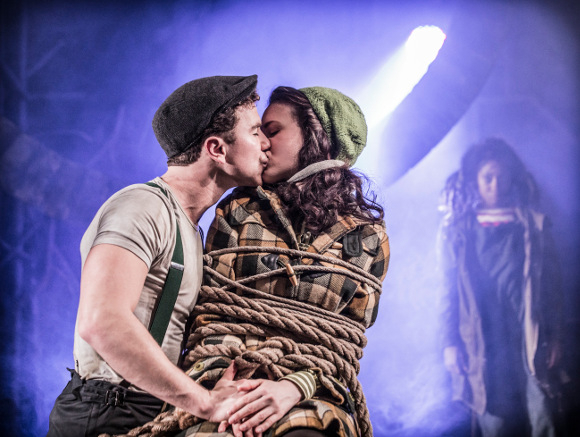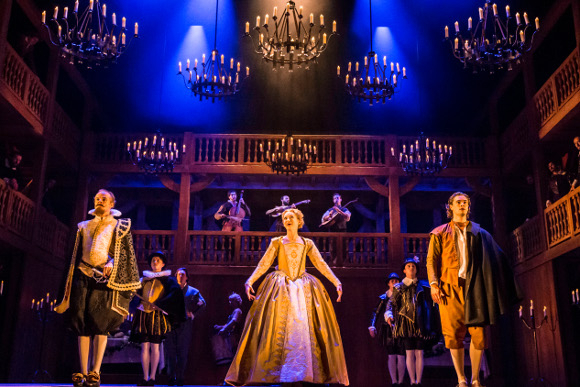A Spelling Discrepancy May Be the Biggest Difference Between London and New York Theatre/er
From West End musicals to pub shows, British theater has more in common with the New York scene than you might expect.

(© Johan Persson)
English comedian David Mitchell thinks "the British and the Americans don't make enough allowances for their cultural differences," and he's probably right. But when it comes to theater, the needle of public opinion might actually be pointing a bit too far in the opposite direction. The world of London theatre isn't nearly as different from the New York theater scene as one might expect — and not just because of the frequency with which we trade both artists and productions. A recent hop across the pond revealed that not only is the range of theater available to Brits comparable to their Big Apple counterparts, but what's considered commercially viable (and what sadly isn't) is also strikingly similar.
The prevailing idea that London audiences have very few theatrical options beyond the West End is unfounded, but the trick is figuring out where to look. One location where adventurous vacationing theatergoers might start their search is in ubiquitous London pubs — more specifically the upstairs space at Kentish Town's The Lion and the Unicorn Pub. The second-floor black-box theater is home to Giant Olive Theatre Company, the Okai Collier Company, and Evcol Entertainment. Last month, Giant Olive staged a reimagined version of Shakespeare's The Winter's Tale. The low-budget steam-punk-flavored production featured just the mix of earnestness and subversiveness one could expect from a Shakespeare adaptation at off-Broadway's The Flea or New York Theatre Workshop.

(© Davor Tovarlaza)
Just like in New York, however, daring theater runs the risk of commercial inviability. The West End's fantastic, critically lauded production of Mark Hollmann and Greg Kotis' Urinetown, which opened at the Apollo Theatre on March 13, was originally set to close on January 10 and instead shut its doors a week early on January 3. The rushed closing was reminiscent of the Broadway production's hasty end: Though the show ran for over two years — just long enough to recoup its investment — it was unceremoniously forced out of its theater for the sake of remodeling. It's also worth noting that this tale of revolution and corruption was edged out of the 2002 Best Musical Tony despite taking home awards for its book, score, and direction. The West End production's Olivier prospects remain to be seen, but the trend set by the Tonys suggests it would be best not to hold your breath — or your bladder.
Despite all that the New York and London theater worlds have in common (for better and worse), there are aspects of seeing a show in England that New World theater can never hope to emulate. Seeing any production of the Bard's own works in London seems somehow inherently more meaningful than the same experience in the States. Similarly, even though the West End's current stage adaptation of the Oscar-winning film Shakespeare in Love comes up short when compared with its antecedent, for an American theater lover, watching the life of Shakespeare played out on a stage in Shakespeare's own city is a near-transcendent experience.
Of course, one can hardly expect American theatergoers to maintain a sense of perspective when watching a London production through the delirious haze produced by the West End's ubiquitous tiny ice creams (seriously, everyone buys these things at intermission). But surely the divergence in our intermission concessions is one difference for which British and American audiences won't have to make allowances for long. If there's one kind of cultural exchange Americans are open to, it's delicious nosh.

(© Johan Persson)










